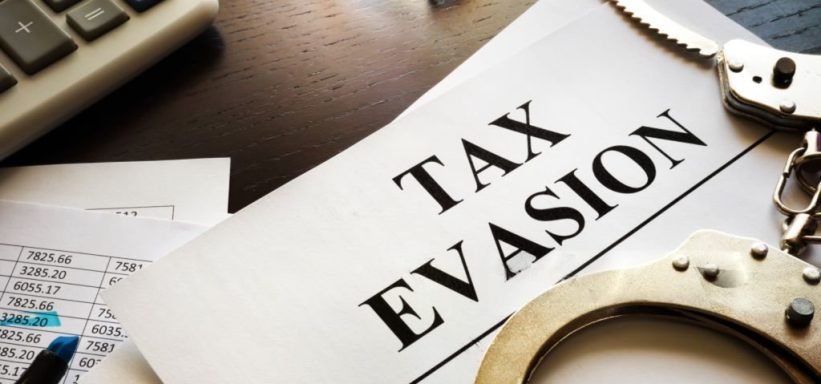When people hear the term “tax evasion,” it often sounds like something that only happens to the rich and famous or maybe to giant corporations making headlines. But the truth is, tax evasion can creep into the lives of everyday business owners and individuals in ways that feel small at first but grow into huge problems down the line.
Maybe it starts with underreporting a little income, pushing off a filing deadline, or thinking the IRS won’t notice a “missed” receipt here or there. The reality? The IRS has become smarter, more data-driven, and far less forgiving. And the costs of being caught can be devastating—not just in terms of money, but also reputation, stress, and lost opportunities.

What Tax Evasion Really Looks Like
Tax evasion is more than just skipping out on a bill. It’s any deliberate attempt to avoid paying taxes you legally owe. This might mean:
- Underreporting income
- Inflating deductions that don’t exist
- Paying employees off the books
- Failing to file altogether
It’s important to distinguish this from tax avoidance, which is perfectly legal. Avoidance is about planning—finding deductions, credits, and strategies that reduce your liability. Evasion, on the other hand, is fraud.
Why the Short-Term “Win” Isn’t Worth It
- Penalties That Pile Up Quickly
The IRS doesn’t just come looking for what you owe—they add penalties and interest that snowball quickly. Missing a filing deadline, underreporting income, or ignoring tax notices can add up to thousands of dollars fast.
- Criminal Exposure
In the most serious cases, tax evasion is treated as a crime. That can mean fines in the hundreds of thousands and, yes, potential prison time.
- Reputation at Risk
For business owners, the fallout isn’t just financial. Investors, lenders, clients, and even employees lose trust fast if your business is tied to noncompliance.
- The Stress Factor
Let’s be real—the IRS knocking on your door isn’t just about numbers. It’s sleepless nights, anxiety, and constant distraction from the very business you’re trying to build.
Why Compliance is the Smarter Investment
Many people assume compliance is expensive or time-consuming. But compared to the cost of evasion, compliance is always cheaper.
The IRS uses advanced tech to cross-check income, bank records, 1099s, payroll reports, and even international transfers. Discrepancies that might have slipped through the cracks a decade ago are now caught almost instantly.
Instead of playing defense, business owners can play offense with smart planning. For example, mid-year reviews, proper entity structuring, and ongoing CPA guidance often uncover ways to lower taxes legally while staying audit-proof. Read: Mid-Year Tax Moves to Boost Your Financial Health.
How to Stay Compliant (Without Losing Your Sanity)
- Keep Your Books Clean
Good bookkeeping isn’t glamorous, but it’s essential. Accurate records of income and expenses protect you from errors and prepare you in case of an audit.
- Separate Business and Personal Finances
Mixing accounts is a red flag. A separate business account keeps things clear and makes reporting easier.
- File, Even If You Can’t Pay
The failure-to-file penalty is harsher than the failure-to-pay penalty. Always file on time, and if cash is tight, set up a payment plan rather than hiding.
- Lean Into Legal Tax Strategies
Tax planning is about timing and strategy—whether that’s retirement contributions, expense timing, or leveraging credits. Done right, it reduces your bill without crossing legal lines.
- Work With a Professional Year-Round
Compliance isn’t a one-day-in-April job. CPAs help you adjust as your income, business structure, or industry shifts. If you’ve ever tried to DIY complex taxes, you already know the value of having an expert by your side. Read: DIY vs. Pro: What Financial Tasks You Shouldn’t Do Alone.
Compliance is More Than “Avoiding Trouble”
It’s easy to frame compliance as a way to dodge penalties. But the bigger picture is this: clean, accurate finances give you credibility.
- Banks are more likely to approve loans.
- Investors are more comfortable writing checks.
- You can focus on growth instead of damage control.
At Empyrean CPAs, we see tax compliance as the backbone of strategic growth. When your numbers are in order, you’re free to think bigger about the future of your business.
Final Takeaway
Tax evasion might feel like a shortcut, but it’s actually the costliest mistake you can make. The penalties are steep, the stress is real, and the damage to your credibility can last years.
Compliance, on the other hand, doesn’t just keep you safe—it sets you up for smarter decisions, smoother operations, and sustainable growth.
If you’ve been putting off proper planning or filing, now is the time to act. With the right CPA guidance, staying compliant isn’t just easier, it’s an investment in your peace of mind and your future.







